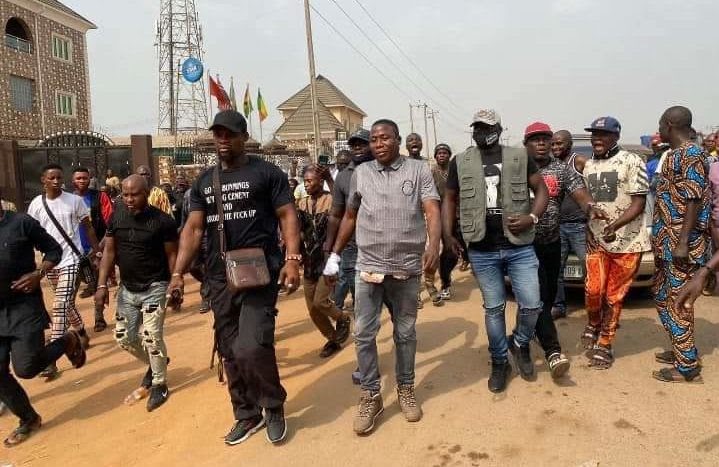
Nigerians across the country are finding it increasingly difficult to sleep with their eyes closed, due largely to the growing insecurity in the country, while the government struggles to resolve these challenges.
The government of President Muhammadu Buhari which rose to power on the promise of tackling insecurity is failing to secure the lives and properties of Nigerians. Across Nigeria’s six geo-political regions, various forms of dire insecurity exist.
Southwest’s self help and creation of Amotekun
To address the growing insecurity, Governors of Nigeria’s Southwest states took action to protect their region and its people as cases of attacks and kidnappings were on the rise.
In 2020, the Governors launched a joint security network codenamed Operation Amotekun. The security outfit was expected to fill the gap where the police and other security operatives have deficiencies or collaborate with them. But the security situation in the Southwest region, like in other regions of the country, has barely improved.
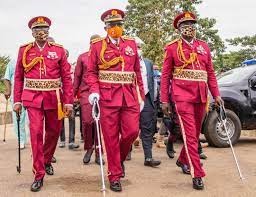
HumAngle has reported how the security challenges in the region have strengthened the debates around restructuring and the power of state governors to control state police.
Security and public analysts say the inability of the government, particularly the federal government to provide adequate security of life and property has given rise to some self acclaimed defenders of the people; one of such, Sunday Adeyemo also known as Sunday Igboho, a sepratist agitator, is now seen as a hero among many.
Sunday Igboho’s rise
The security challenges in the Southwest region got to their peak in early 2021 following the unlawful intervention of Igboho who visited Igangan community in the Ibarapa area of Oyo State to evict Salihu Abdulkadir, the Seriki Fulani of Igangan, an action that was condemned by the state and federal governments.
Igboho claimed that Abdulkadir was responsible for the kidnapping and killing of farmers and residents of the community. Even after his denial, the Fulani leader and his subjects were forcefully sent out from the community they had lived in for decades.
For the authorities, Igboho went above the roof because “no citizen has the right to eject others from wherever they wish to reside in the country.” Igboho in various online videos boasted about having guns and other unlawful arms. He promised to purchase guns for youths who share his views of defending the people of the Southwest and most importantly, his agitation for the creation of a Yoruba nation, because according to him, he has lost trust and confidence in the Nigerian nation.
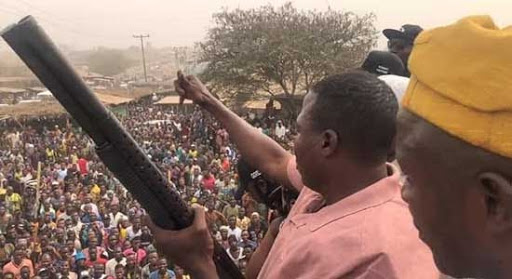
He later proceeded to neighbouring Ogun State to evict herders residing there. His activities metamorphosed into demands for self-determination. The acclaimed warlord and members of Ilana Omo Oodua led by Banji Akintoye are championing Yoruba nation, a political ideology to get political independence for the Yoruba race in Nigeria. They have led rallies in Ondo, Ekiti, Osun, Oyo, and Ogun states.
Barely 72 hours to a planned rally in Lagos, Igboho’s home was raided by Nigeria’s secret police. While some of his aides were arrested, he escaped. He was declared wanted and eventually arrested in the Benin Republic weeks after.
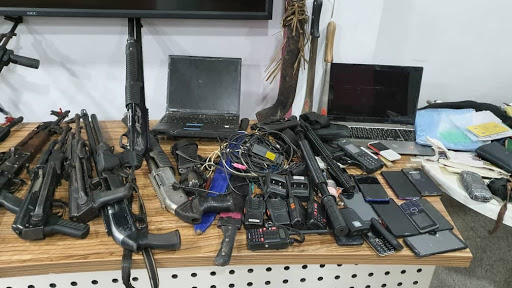
After 34 days in SSS custody, a Federal High Court sitting in Abuja granted bail to the arrested aide as Igboho’s case continues in Benin Republic.
Igboho filling the vacuum the government failed to fix?
Some critics believe that the failure of the government to rise to the occasion gave room for the emergence of individuals like Igboho, who now see themselves as ‘saviours.’
A public affairs analyst, Kazeem Israel, told HumAngle that “Nigerians have lost trust in the government to protect their lives and properties. They decided to love and support Igboho because he was the one they saw when they were helpless. “This is not good for the existence of the country but that’s the situation we find ourselves in Nigeria.”
“Before his arrest, Igboho boasted about being in possession of arms. There is no doubt that Igboho is a logical consequence of a failed State,” he added. “Until authorities show political will to tackle insecurity, we may not get things right in Nigeria. The failure of authorities emboldened like Igboho and others like him.”
For Joke Kanu, a security expert, Igboho “helped his people as security forces watched ‘bandits’ occupying the highways and farms.”
Kanu maintained that “Self-help is justified when official help is missing in the face of security challenges. Igboho was simply providing the leadership Buhari is unable to show.”
What the law says about Igboho’s actions
Section 41 of the Nigerian 1999 Constitution explicitly states that “every citizen is entitled to move freely and to reside in any part thereof, and no citizen shall be expelled from Nigeria or refused entry thereby or exit therefrom.”

HumAngle understands that the limitations to this freedom of movement include “imposition of restrictions on the residence or movement of any person who has committed or is reasonably suspected to have committed a criminal offence in order to prevent him from leaving Nigeria, or such person been tried outside Nigeria for any criminal offence, or undergo imprisonment outside Nigeria in execution of the sentence of a court of law in respect of a criminal offence of which he has been found guilty.”
Also, sections 43 and 44 of the 1999 constitution provides for the right of citizens to own property in any part of Nigeria. “Subject to the provisions of this constitution, every citizen of Nigeria shall have the right to acquire and own immovable property anywhere in Nigeria,” section 43 of the law states.
Reacting to Igboho’s actions, Daniel Onwe, a Lagos-based lawyer, said Igboho is not above the roof and “has no right to issue an ultimatum to people to vacate their community.”
However, Mike Ozekhome, prominent lawyer and a Senior Advocate of Nigeria (SAN) said “the young man (Igboho) with a tattooed face that proudly displays his tribal marks is no longer an ordinary “small boy” representing himself alone. He has become a metaphor for the Yoruba struggle for self-determination.”
Go and sort yourselves out
After creating the Amotekun security outfit, some Southwest governors visited President Buhari to explain the travails of citizens and the activities of bandits, hoodlums, armed robbers, and kidnappers in their region.
Instead of taking charge, Buhari subtly called them out, accusing the governors of incompetence over their handling of the farmers-herders clashes rocking the region.
“Two governors from the South-west came to tell me that the cattle rearers in some of the forests are killing farmers while their cattle are eating their crops,” Buhari said during an interview with Arise TV crew in June.
“I told them you campaigned to be elected and you are elected. I told them (to) go back and sort out themselves.”
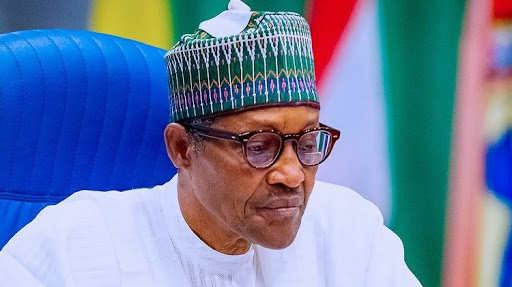
The Global Terrorism Index of 2019 revealed that Nigeria is the third-worst nation prone to terrorism with no improvement since 2017.
Recently, a senator under the banner of Buhari’s ruling All Progressives Congress (APC), Smart Adeyemi, was moved to tears while speaking on security challenges in the country. For Nobel Laureate Wole Soyinka, Nigeria is a war zone.
The blame games
The President himself admitted in 2020 that security problems in the country were “very, very disturbing.” Two months ago, Lai Mohammed, the country’s Information Minister admitted the same but said “those challenges are fleeting and will not define the legacy of President Muhammadu Buhari.”
Even after admitting, Buhari and his team have continued to blame their political opponents and some community leaders for being complicit in the chaos. In May, Femi Adesina, Buhari’s media adviser blamed ‘evil forces’ as the reason for insecurity in the country.
Support Our Journalism
There are millions of ordinary people affected by conflict in Africa whose stories are missing in the mainstream media. HumAngle is determined to tell those challenging and under-reported stories, hoping that the people impacted by these conflicts will find the safety and security they deserve.
To ensure that we continue to provide public service coverage, we have a small favour to ask you. We want you to be part of our journalistic endeavour by contributing a token to us.
Your donation will further promote a robust, free, and independent media.
Donate HereStay Closer To The Stories That Matter




